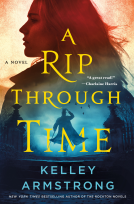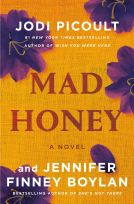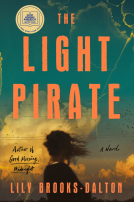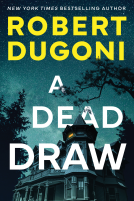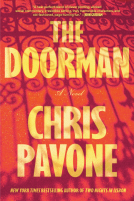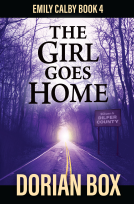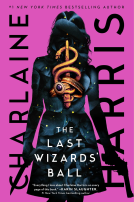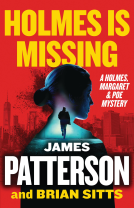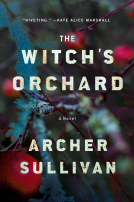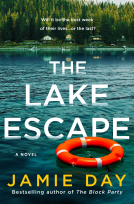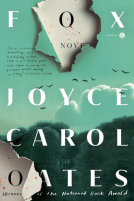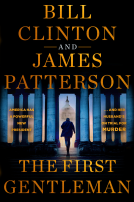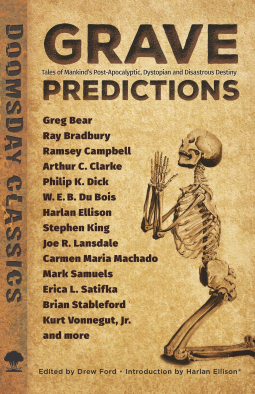
Grave Predictions
Tales of Mankinds Post-Apocalyptic, Dystopian and Disastrous Destiny
by Stephen King; Greg Bear; Ramsey Campbell; Joe R. Lansdale; Carmen Maria Machado; Mark Samuels; Erica L. Satifka; Brian Stableford; Ray Bradbury; Arthur C. Clarke; W.E.B. Du Bois; Kurt Vonnegut
This title was previously available on NetGalley and is now archived.
Send NetGalley books directly to your Kindle or Kindle app
1
To read on a Kindle or Kindle app, please add kindle@netgalley.com as an approved email address to receive files in your Amazon account. Click here for step-by-step instructions.
2
Also find your Kindle email address within your Amazon account, and enter it here.
Pub Date Sep 21 2016 | Archive Date Dec 13 2016
Description
These compelling visions of post-apocalyptic societies and dystopian worlds include short stories by some of the most acclaimed authors of our time. Among the noteworthy contributors and their works are Stephen King's "The End of the Whole Mess," "The Pedestrian" by Ray Bradbury, and Arthur C. Clarke's "No Morning After."
The first-ever apocalyptic fantasy about global warming, "The End of the World," appears here, in translation from Eugene Mouton's 1872 French-language original. "The Pretence," by Ramsey Campbell, questions the nature and structure of everyday life in the aftermath of a doomsday prediction. In addition, thought-provoking stories by Philip K. Dick, Kurt Vonnegut, Jr., Greg Bear, Erica L. Satifka, and others offer an end-of-the-world extravaganza for fans of science fiction, horror, and fantasy.
Available Editions
| EDITION | Paperback |
| ISBN | 9780486802312 |
| PRICE | $19.95 (USD) |
| PAGES | 304 |
Featured Reviews
 Reviewer 230978
Reviewer 230978
Grave Predictions, Edited by Drew Ford- A lot of well-known authors are collected here in this book about apocalyptic ends of human civilization. Harlan Ellison starts things off with an introduction only as Harlan can. We will visit him again later in the book with his famous short story "I Have No Mouth and I Must Scream." Sixteen stories about Mankind's last breath beginning with a 1872 declaration by Eugene Mouton "The End of The World" and including works by Stephen King, Arthur C. Clarke, Ray Bradbury, Joe R. Lansdale, Greg Bear, Ramsey Campbell and many more. Some are classics while others are less so, but still remain tied to the central theme. My copy did not have an active table of contents which would have aided me greatly as I like to hop around an anthology, cherry-picking my favorites first. Bur if facing the end is what you're into, this anthology has got you covered.
These are stories of the end of the world, and the various ways it can come about. There are lots of big name writers which is what attracted me to this book but also I was hoping for a little more horror and a little less science fiction. You may have come across some of these stories in previous publications. All are worth a read but none are particularly terrifying. I did particularly enjoy "Automatic"
"2BRO2B" where population control is of such importance that if you want to have a baby you must find a volunteer to die. "The End Of The Whole Mess" a Stephen King story that I don't think I have read before.
 Kate W, Educator
Kate W, Educator
This collection features some familiar classics of the genre, including chilling tales from Harlan Ellison and Kurt Vonnegut. There are also less familiar and previously uncollected stories. Ramsey Campbell's enigmatic story 'The Pretence' is worth the price of admission on its own, as is Mark Samuels none-more-bleak fable 'The Mould'.
 bonnie s, Librarian
bonnie s, Librarian
The authors speak for itself when it comes to this book! A winner all the way around!!
 Ila T, Reviewer
Ila T, Reviewer
So many ways to die as the Earth ends. Highly recommend as a gift for anyone who loves to read, or for someone who is difficult to gift. The list of authors will initially draw you in, the intrigue will keep you reading. These incredibly written bits deserve to be taken 1 at a time, you should breathe in between for maximum enjoyment. Disclaimer: I was given an ARC from Netgallery in return for my honest opinion.
https://www.goodreads.com/review/show/1776526316
There are some giants here and there are some giants just waking from their slumber as well. A fantastic collection!
 Reviewer 54132
Reviewer 54132
What a collection! I love apocalyptic novels, and this collection is perhaps the finest collection of sci fi/apocalyptic short stories ever assembled. Just look at some of the authors: Kurt Vonneget, Stephen King, Ray Bradbury, Arthur C. Clarke, even Philip K. Dick!!! They cover the ages as well, from the late 1800s to present.
I found this in my library first, and when I saw it on NegGalley I had to ask for a copy just to have these words for myself. Yes, get this collection if you like science fiction, if you like apocalyptic tales, if you like horror. It's truly awesome, and all the stories are short, the book itself is fairly light but well put together.
This is one of th best anthologies I have ever read. Ford has selected some of the best names on this genre. I'll be recommending this title for my library as well as adding it to my personal libary. Review for Monster Librarian forthcoming.
 Steven Z, Reviewer
Steven Z, Reviewer
A wide range of authors writing through a lengthy time period makes this collection not only a good read but also provides a good historical overview of 'Grave 'Predictions' . A book recommended to all.
 Reviewer 373654
Reviewer 373654
A collection of sixteen short stories featuring post-apocalyptic and dystopian societies that expands greatly the modern incarnation of this popular young adult genre. In fact, the first known global warming apocalyptic fantasy , “The End of the World,” is included, translated from Eugene Mouton’s 1872 French-language original. Together with well-known scifi authors, Ray Bradbury, Arthur C. Clarke, Phillip K. Dick, and Stephen King, and lesser know but equally awarded Greg Bear, Ursula K. LeGuin, and Harlan Ellison, these doomsday tales are highly original, thought-provoking, and reality-questioning.
For me, about half of these short stories are a solid 4 stars, and about a quarter are 5 star worthy. Although this compilation does a great job of highlighting different strengths of the genre, they all tend toward hypothetical scifi with a splash of horror, fantasy, or quirkiness. My favorites include—
The highly abstract pieces that challenge an everyday state of consciousness, including:
-Judgement Engine by Greg Bear, in which a collective electronic form of human consciousness known as the social=mind resurrects an ancient version of itself in an attempt to save the universe.
-The Pretence by Ramsey Campbell, in which the end of the world as predicted by a group of doomsday fanatics comes and goes, but a family man struggles to remember the details of his own life and what is most important to him.
The hyper-present narrator that draws you into a world for which you aren’t ready, including:
-The Ones Who Walk Away from Omelas by Ursula K. LeGuin, in which a philosophical question about exploitation and tragic trade-offs is presented in a uniquely confrontational critique of human nature.
-The End of the Whole Mess by Stephen King, in which a man races to type out the tension-filled story of his brothers’ failed experiment to rid the human race of violence before his mind succumbs.
The unanticipated surprise endings that necessitate re-evaluation of the entire story, including:
-The Pedestrian by Ray Bradbury, in which a man walks through a city at night. In ten years of walking, he has never seen another person.
-The Engineer and the Executioner by Brian M. Stableford, in which a robot and a scientist debate whether a new kind of life is a threat to the human race.
Recommended as a collection for fans of intriguing and eccentric scifi!
 Stephanie C, Reviewer
Stephanie C, Reviewer
Excellent stories! Wonderful main characters and really well written. I would recommend this book.
 Nancy H, Reviewer
Nancy H, Reviewer
Grave Predictions is another anthology with an apocalyptic or dystopian theme to the stories. I consider myself a fan of the apocalyptic/dystopian genre so I was excited to see a collection with a variety of stories. There are 16 different stories by 16 different writers. I included the full list of stories below. It is always nice to know what stories are in a collection like this beforehand. The stories are not new and have been published before. Only one of the 16 I have read before. There is something for everyone - super computers, comets, aliens, global warming, nuclear war and more. My favorites were The End of the World, Upon the Dull Earth, The End of the Whole Mess, and Tight Little Stitches in a Dead Man's Back. Most of them weren't too depressing either, which is a plus. Short stories are always a hit or a miss. You either love them or hate them. Overall, I rated the majority of the stories as three stars. If you haven't read these before and you are a fan of sci fi and short stories, then this would be a good collection to read.
Eugene Mouton - The End of the World (1872)
W. E. B. Du Bois - The Comet (1920)
Ray Bradbury - The Pedestrian (1951)
Arthur C. Clarke - No Morning After (1954)
Philip K. Dick - Upon the Dull Earth (1954)
Kurt Vonnegut, Jr. - 2 B R 0 2 B (1962)
Harlan Ellison - I Have No Mouth, and I Must Scream (1967)
Ursula K. Le Guin - The Ones Who Walk Away from Omelas (1973)
Brian M. Stableford - The Engineer and the Executioner (1976)
Stephen King - The End of the Whole Mess (1986)
Joe R. Lansdale - Tight Little Stitches in a Dead Man’s Back (1992)
Greg Bear - Judgment Engine (1995)
Erica L. Satifka - Automatic (2007)
Mark Samuels - The Black Mould (2011)
Ramsey Campbell - The Pretence (2013)
Carmen Maria Machado - Inventory (2013)
In the age of interdisciplinary general studies courses, this is a great apocalypse anthology that could be used for an intro course! This version had wonky formatting so it made it challenging to have a smooth reading experience but overall it was worth tolerating the odd breaks.
 Julie S, Reviewer
Julie S, Reviewer
This is a compilation of 16 short stories about "The End" of humanity, of earth, of time, of everything! It will take fortitude to read it. It is in some respects grim.
I have taken a few months to pick it up and a few days to read it. There have been times when I put it down, to rest, to escape from the dour prospect within. It has coloured my days a little and I am (honestly) glad to have finished reading it (I intend to read something light and cheerful).
The stories are:-
The End of the World Eugene Mouton
The Comet W. E. B. Du Bois
The Pedestrian Ray Bradbury
No Morning After Arthur C. Clarke
Upon the Dull Earth Philip K. Dick
2 B R 0 2 B Kurt Vonnegut, Jr.
I Have No Mouth, and I Must Scream Harlan Ellison
The Ones Who Walk Away from Omelas Ursula K. Le Guin
The Engineer and the Executioner Brian M. Stableford
The End of the Whole Mess Stephen King
Tight Little Stitches in a Dead Man’s Back Joe R. Lansdale
Judgment Engine Greg Bear
Automatic Erica L. Satifka
The Black Mould Mark Samuels
The Pretence Ramsey Campbell
Inventory Carmen Maria Machado
It sounds like I didn't appreciate the content of the tales, I did, they were thought provoking and each was as different from the others as they could be. There was loads of variety for the ending of things! I would wake in the night with brilliant insights to put into the review to give an idea of what the books were like. Then come the morning my memory had been wiped of these wonderful words and I feel like I'm writing something mundane that cannot really describe what the tales are like!
Next I'm coming to giving the compilation a review score and wondering how I do that. It is almost impossible to decide. I think if you read the book in 16 different sittings you will give each session a different score. The words smithing is extremely good, so I think I will have to score based on the craftsmanship of the work (which is still difficult as there are 16 different styles to consider).
I reckon if you are in the mood for dour destiny then you will enjoy these stories. If you are prone to being affected by dismal predictions, then stay well away. The choice is up to you.
 Althea M, Book Trade Professional
Althea M, Book Trade Professional
*** THE END OF THE WORLD - (Eugene Mouton) - This essay by a 19th-century French writer of the fantastic is unfortunately still awfully relevant. Sure, there are a few predictions here that haven't aged all that well, but the vast majority of Mouton's fears have turned out to be very well founded. (His main concern: global warming caused by increased industry and population density.)
*** THE COMET - (W.E.B. Du Bois) - I never knew that the famed civil rights activist had written a piece of post-apocalyptic fiction! This public-domain piece is also available online, here: http://hilobrow.com/2013/05/21/the-co...
A low-level bank employee is busy with a seemingly-unenviable task in the vaults when the Earth whisks through the tail of a comet. The astronomical event was predicted; its effects were not. When the man emerges from the sealed-off depths of the bank, he is shocked to find that it seems that he may be the last man on Earth: everyone around him has succumbed to toxic vapors from the passing comet.
The language the piece is written in is rather florid and overwrought, to the present-day reader. However, the point of the story is clearly impassioned and still-valuable, even today. DuBois was primarily concerned with human rights, not fiction, and this is a story with a message: (view spoiler)
I'm extremely glad to have read this.
Later thought:
I've been asked many times: What is the appeal of post-apocalyptic fiction? I think DuBois cuts right to the heart of it, here. The question at the core of much of this genre is: What would we be, if everything we take for granted was stripped away?
Often, authors answer that question with "barbaric and terrible in oh so many ways." DuBois has a different answer, and I think his has much truth to it.
***** THE PEDESTRIAN - (Ray Bradbury) - Published in 1951, two years before his most-famed work, 'Fahrenheit 451,' the themes here will be very familiar to anyone who's read that book. The short story also makes very clear what Bradbury meant when he made his controversial statement that his novel was not about the dangers of censorship but about the evils of television. The content of this story is simple: a solitary man takes his habitual evening walk through his neighborhood, passing house after dark house full of people sitting and watching TV. No one else is on the streets - and the man is stopped and arrested by an unmanned police vehicle for his suspicious and deviant behavior.
The message is precisely the same as that of 'Fahrenheit 451' and it's stated even more clearly here. Yes, the faceless government forces are cracking down on "regressive" and anti-social behavior. But the reason is because that is what the masses want. The man we see here - an unemployed writer - has cultivated skills that are undesired by his society. He is single; no one even wants him as a partner. Every single other person in his neighborhood is happy to eschew personal contact. As in the novel, the oppressive dystopian government that we glimpse here is actually doing exactly what the majority of the people wants - and that is the truly frightening aspect of the prediction. The danger is not necessarily that a future society will be crushed by forces from above - but that a future society will no longer see value in intellectual freedom and the diversity of complex and dissenting expression of opinions.
Personally, I don't think that TV is all that bad. It certainly CAN be bad, but it doesn't have to be. It's just another media format, and is perfectly able to convey worthwhile content. I would be more in agreement with the noted TV journalist Edward R. Murrow, who, not long after this story (and Fahrenheit 451) was published, in 1957, said: "It might be helpful if those who control television and radio would sit still for a bit and attempt to discover what it is they care about. If television and radio are to be used to entertain all of the people all of the time, then we have come perilously close to discovering the real opiate of the people."
However, while I might not agree that TV is the danger, I certainly do agree with Bradbury's core idea regarding the dangers inherent in the dumbing down of society and the waning interest in intellectual pursuits in general.
**** NO MORNING AFTER - (Arthur C. Clarke) - A re-read... but I read it long ago. Clarke isn't generally known for his humor, but this is an excellent piece of black comedy. Benevolent, telepathic aliens are desperate to contact humanity with a message of the greatest import for us. However, the only guy they manage to reach is both wildly depressed and three sheets to the wind - and believes he's hallucinating.
**** UPON THE DULL EARTH - (Philip K. Dick) - Horrific and surreal. A woman can summon... things... to her. Angels? Aliens? Vampires from another dimension? She believes she is destined to join them, against the protests of her fiance and her family. She has some sort of scientific? occult? setup in order to facilitate her transformation. But things so wrong... and then they go worse.
I think this is my favorite piece that I've read from Philip K. Dick.
*** 2 B R 0 2 B - (Kurt Vonnegut, Jr.) - I've never been a big fan of Vonnegut, though I've tried. I had mixed feelings about this one, as well.
In a near future, the Earth's overpopulation problem has been solved by strict laws. Aging has been "cured" and people can live youthfully indefinitely - but the necessary corollary is that births must be limited. Voluntary euthanasia is encouraged.
In his trademark darkly humorous style, Vonnegut portrays this situation as grotesque and inhumane. I actually disagree, so I couldn't really wholeheartedly embrace the story.
(view spoiler)
***** I HAVE NO MOUTH AND I MUST SCREAM - (Harlan Ellison) - A re-read, of course - but I was actually surprised at how much of the story I'd forgotten (although, the final scene stayed with me clear as day!)
There are a lot of stories in which humanity's technology turns on us, but this is the ultimate classic example of the theme.
A supercomputer has become sentient - and with consciousness it developed a consuming hatred of its creators. Wiping out civilization was child's play - and now, only five human beings remain, kept alive indefinitely (and interminably) for the sole reason that the AI enjoys torturing and tormenting them, messing with both bodies and minds. Death would be a welcome release.
I can confirm: still horrifically nasty after all these years!
***** THE ONES WHO WALK AWAY FROM OMELAS - (Ursula K. Le Guin) - Another re-read. This is a powerful and thoughtful story; one that should be read by every student of ethics. (Whether it really fits the theme of this anthology is another question, but...)
LeGuin asks the question: does the good of the many REALLY outweigh the good of the few... or the one? Even if you believe you have answered that question for yourself, to your moral satisfaction, this piece will cause you to question your convictions.
The city of Omelas is a utopia - but it also contains a small, but awful, misery. Is it acceptable? Justified? Opinions will differ.
Every time I read this story, I come away from it convinced that Ursula LeGuin is a better person than I am.
*** THE ENGINEER AND THE EXECUTIONER - (Brian M. Stableford) - Classic-feeling sci-fi. Extremely predictable, but fun... well, fun, in a way.
A robot has been dispatched from Earth with a mission: an engineer's experiment; creating artificial life within a distant asteroid, has been adjudged too dangerous to be allowed to continue. There's a possibility that his self-replicating biota could infect and wipe out all life on Earth. The engineer argues emotionally that this possibility is so remote as to be ridiculous - but there's no arguing with the implacable machine intelligence of a robot.
**** THE END OF THE WHOLE MESS - (Stephen King) - Previously read in both 'Nightmares & Dreamscapes' and the 'Wastelands' anthology. Still worth the third read!
Told as a dying man's last confession and testament; the reader learns what did the world in: an unprecedented discovery, and a well-meaning attempt to save humanity from our own worst natures. As it has been said, 'fools rush in where angels fear to tread,' and, blinded by hubris, a genius researcher failed to correlate the damning data before it was too late...
** TIGHT LITTLE STITCHES IN A DEAD MAN'S BACK - (Joe R. Lansdale) - Not for me. If you like horror that's gross just for the sake of being gross, you may feel differently.
In a post-apocalyptic wasteland full of dangerous and poisonous mutants, a nuclear engineer wallows in his guilt and his wife's hatred, while nursing a bizarre obsession with the daughter who died in the atomic blasts.
** JUDGMENT ENGINE - (Greg Bear) - At the end of the universe, evolved intelligences contemplate a thorny philosophical problem, and a mundanely flawed romantic relationship is examined. I had a hard time getting into this one.
*** AUTOMATIC - (Erica L. Satifka) - A terrible plague nearly wiped out humanity. There would be no one left alive if not for the aliens from Ganymede, who apparently find humans quite fascinating. Earth has been saved... sort of... but (there's always the 'but') as a tourist attraction / zoo / breeding program - after all, we're an endangered species.
Most of the few remaining survivors are grateful or at least content, even though the Ganymedans aren't really necessarily all that good at 'keeping' humans. But our protagonist is a dissatisfied Winston Smith-type who attempts to resist and would most likely rather die free than live to provide entertainment to aliens.
** THE BLACK MOULD - (Mark Samuels) - Sticking in the words "aeons" and "nameless dread" in random places does not Lovecraft make. An unsuccessful imitation of an antiquated writing style mars this recitation of the progress of black mold spores that take over the universe.
**** THE PRETENCE - (Ramsey Campbell) - One of the most interesting end-of-the-world pieces I've read (and I've read a lot). Not plot-oriented, the long piece creates an atmospheric feeling of creeping dread. Our protagonist is a regular guy - a family man and classical music afficionado. He has nothing but disdain for the doomsday cult that's been gaining traction, calling themselves 'The Finalists.' When he wakes up the morning after their prophecied 'end,' obviously, the fanatics were wrong and nothing happened. Or... did it? Everything seems just a bit... off.
*** INVENTORY - (Carmen Maria Machado) - Our protagonist has an affinity for lists. She likes enumerating things. Here, she details the people she has had sexual contact with throughout her life. But gradually, we realize this is not just someone's list of conquests, but the story of a devastating, apocalypse-level epidemic. And since the disease is spread through personal, physical contact, this particular 'inventory' is terribly apropos.
Many thanks to Dover and NetGalley for the opportunity to read this collection. As always, my opinions are solely my own.
 ian v, Media/Journalist
ian v, Media/Journalist
End of the world short stories from some of the best authors ever,King Vonnegut,Bradbury some are a little dated and well read already but all worth having in the one volume.
 Keith C, Media/Journalist
Keith C, Media/Journalist
Grave Predictions is an interesting and thought provoking collection of short stories provided by a multitude of very accomplished authors. Each story stands very well on its own.
There are some real hidden gems within the collection and it is always a joy to be able to read King, Dick, Bradbury and Clarke all within the same volume. Each story centres around the end of the world and how it may end. As with short story anthologies, there are some that come across stronger than others but that mainly down to placement and not content.
This is a worthwhile spine tingling read and highly recommended.
 veronica l, Reviewer
veronica l, Reviewer
I have always been fascinated by stories of the end of humanity so I jumped at the chance to pick up a copy of this book especially with greats such as Stephen King, Ray Bradbury, and Arthur C. Clarke gracing the pages. Usually I read one story at a time but I found myself reading more in this book and sometimes could not put it down. Every story was completely original. All in all, I really enjoyed reading this anthology of the last days of Mankind.
I received a copy of this book from the publishers (via) Netgalley for free in exchange for an honest review.
Readers who liked this book also liked:
Jodi Picoult; Jennifer Finney Boylan
General Fiction (Adult), Literary Fiction, Women's Fiction
James Patterson; Brian Sitts
General Fiction (Adult), Mystery & Thrillers, Women's Fiction
